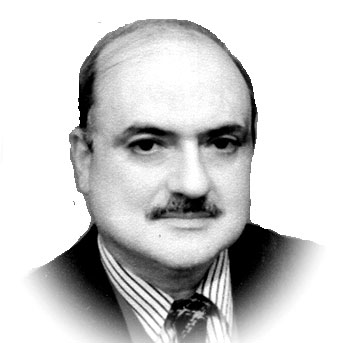International economic (dis)order!
HOW many would recall that fateful day when the United States of America de-linked the US dollar from the gold standard – in what has come to be recognised as the biggest default in the history of international finance? The economic fettle of nations has never been the same again. The International Economic Order continues and is destined to be in a state of sixes and sevens.
The perspicacious reader will recall that the US dollar was once linked to the gold standard at the rate of thirty-five dollars to an ounce of the glittering stuff.
What this meant was that anyone producing thirty-five dollars in cash could rightly lay claim to an ounce of gold.
When the powers that be decided to arbitrarily de-link the US dollar from the gold standard, the price of the precious metal instantaneously rose to the level of around three hundred and fifty dollars an ounce.
The US dollar, in effect, had been subjected to an instant depreciation of nine-tenths of its intrinsic value.
The biggest losers were the nations (mostly developing states) that had maintained their monetary reserves in US dollars. Overnight, the intrinsic worth of their assets fell to a mere ten percent of their original value.
By the same token, the international liability of the United States of America was reduced to ten percent of what it was a day earlier.
What the aforesaid goes to prove is that the International Financial Regime has been anything but equitable, and is open to manipulation by the powers that be.
A small item of news that managed to find an obscure place in the financial pages of newspapers some months back brought back memories of the aforesaid.
What was new in this news item – that, incidentally our financial and economic experts opted to totally ignore – has the potential of one day challenging the inequitable New International Economic Order.
It contained the report that the northern Malaysian state of Kelantan took advantage of the advent of Ramadan to introduce Islamic gold dinars and silver dirhams to promote their usage as an alternative to paper money.
Although the coins were not legal tender, businesses in Kelantan were reported to be using them widely. Possibility of the practice spreading to other states of Malaysia and beyond should not be discounted.
Why is this development of note? The concept of ‘Islamic gold dinar’ as an alternative to the US dollar for intra-Islamic States commercial dealings was first mooted, circa 2000, by former Malaysian Prime Minister, Mahatir bin Mohammad.
Mahatir, whose bold economic policies had helped his country surmount the financial crisis created by the international finance institutions, reportedly had a viable roadmap in mind.
It was also generally believed at that time that Mahatir bin Mohammad had completed the groundwork on a grandiose plan to overhaul the OIC, should he be elected as its Secretary-General.
The aforementioned is partially borne out by one’s personal knowledge as the then Assistant Secretary General of that Organization.
The Malaysian Prime Minister had engaged a reputed firm of Consultants to prepare a study on overhauling the OIC and its Charter.
One is in the know because senior representatives of this firm of consultants had informally visited the OIC Headquarters in Jeddah.
Among others, they had a longish in-depth meeting with one on the subject that lasted for two hours and more, during which all relevant factors came under discussion.
Speculation was then rife that Mahatir had shown interest in taking over as Secretary General of the OIC on his retirement as Prime Minister of his country. He was a leader of great vision.
If this had come about, he would not only have made an outstanding Secretary General he could also have helped resuscitate the moribund organization.
The concept of the Islamic gold dinar to be used by the Islamic states as the base of their monetary reserves and for intra-state trade and commerce was possibly intended to be put on the agenda of the OIC for future deliberations.
But this was not to be. For reasons that need not be detailed here, Mahatir’s ‘dream’ was nipped in the bud by the powers that be.
The International Economic Order that continues to be in vogue is anything but equitable.
It is horribly biased against the developing states, who find themselves out-maneuvered at every turn by those who hold the key.
The developing world, thus, continues to suffer from the machinations of hoary figures who manipulate the international finance regime as they think fit.
Every once in a while the powers that be decide to turn the screw and the poorer nations find themselves on the receiving end.
The developing countries – much like the Light Brigade – are not expected to ‘reason why’, but merely ‘to do and die’.
Meanwhile, the price of gold which is wide open to manipulation has crossed the barrier of 1,200 dollars an ounce and counting. Only the manipulators know where it will all lead to.
The question that presents itself begging for an answer is: will the developing nations ever become masters of their economic fate, or are they destined to remain addicted to the crumbs off the high table? As things stand, the outlook hardly looks rosy. The portents are not only not promising but actually look ominous.
The fact that the small Malaysian state of Kelantan resolved not to let the idea of the Islamic Gold Dinar die down may yet prove to be the harbinger of good news for the economic future of the Muslim States and the welfare of their peoples.
If only someone would step forward and grasp the nettle. But it would entail major surgery and a period of belt-tightening for which most may be ill-prepared.
Like most revolutionary ideas this one too may look improbable at the moment. But who knows what the future may hold?
— The writer is a former Ambassador and former Assistant Secretary General of OIC.










